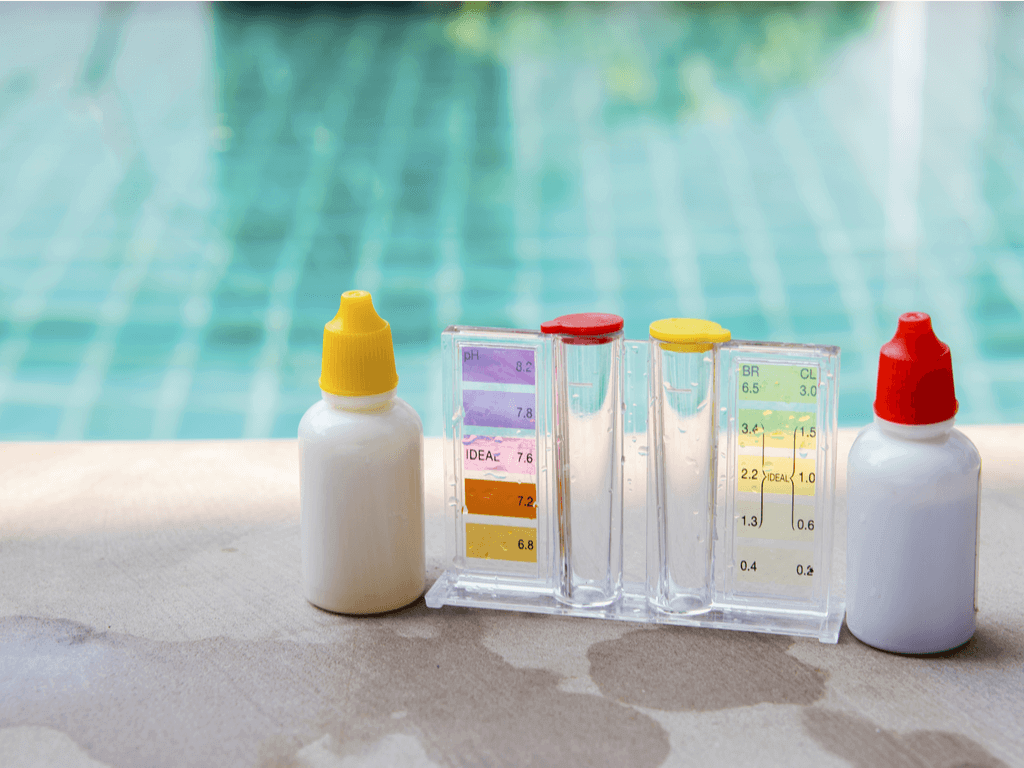How Do Pool Chemicals Work?

There are a lot of pool myths surrounding pool chemicals. You’ve probably heard of the common myths like pool chemicals causing itchy eyes, chlorine water turning blonde hair green, or even that the smell of chemicals means clean water. Myths like these arise from a lack of facts and understanding, but if everyone knew how pool chemicals actually work, then they could better decide if a pool is right for them.
What Do Pool Chemicals Get Rid Of?
Water is necessary for all life. This includes dangerous bacteria, fungi, and other matter that is unhealthy to have in our bodies but will grow in water. When you bathe or shower, the water doesn’t sit long enough to cultivate pathogens. The same can be said for the ocean, and the salt in ocean water makes it inhospitable for these pathogens to grow as well. With pool and spa water, the water is fresh which means little to no salt, and it sits in the same place rather than moving from a clean storage space to your house. This makes it necessary to manually remove these pathogens, and we do that with chemicals.
Chlorine kills off a lot of bacteria, but four dangerous ones are:
- E. coli: This dangerous bacteria will die off in less than a minute after chlorine is added to the pool’s contents.
- Hepatitis A: Chlorine kills this virus approximately 16 minutes after it is added to the pool.
- Giardia: It takes chlorine approximately 45 minutes to kill off this parasite.
- Cryptosporidium: This is another parasite that chlorine kills, but it takes approximately 10.6 days. Because this takes so long, you should be chlorinating your pool regularly so that it’s constantly killing pathogens like this.
How Does it Work?
When you add chlorine or other similar chemical compounds to your pool, it reacts to the water. These are chemical reactions that form new chemicals, such as hypochlorous acid. This sounds intimidating but creates an environment that’s inhospitable to pathogens including those stated above and more. This chemical attacks the cells of these pathogens, destroying their structure until they’ve dissipated. Other sanitizers, like bromide, work similarly to chlorine.
Chlorine can be prepared as a liquid powder or tablet. Depending on your chlorination system, these will mix in with the water and be dispersed throughout your pool. This does not kill everything, so chemicals are typically used to take care of whatever the pool’s filtration system doesn’t get. This means that chemicals actually kill off all the leftovers that survive past your filtration system.
What Else Do Pool Chemicals Do?
Chemicals do more than just kill pathogens that your filtration system wasn’t able to get – they also balance the pH levels of the water. Think back to high school biology and chemistry. pH levels measure hydrogen ions in water and water-based solutions. Low pH levels mean the water is acidic, and high pH levels mean it’s basic. Having water that’s too acidic or basic is not fit to swim in, and it can make the water cloudy, letting you know you shouldn’t swim in it.
Acidic and basic water is what will irritate your eyes and skin, which means that pool chemicals are actually preventing that and preventing the water from looking gross and unclean.
Get Help From Aqua Leisure Pools & Spas
There’s no reason to get bent out of shape over pool chemicals. They’re not complicated or scary, they’re only meant to help. If you have any more questions about how pool chemicals like chlorine work, or other types of water filtration systems that you can use in a pool, contact Aqua Leisure Pools and Spas. We’ll help you understand how to take care of your pool, or prepare to take care of a new one.
Posted by Aqua Leisure Pools & Spas in Pools

